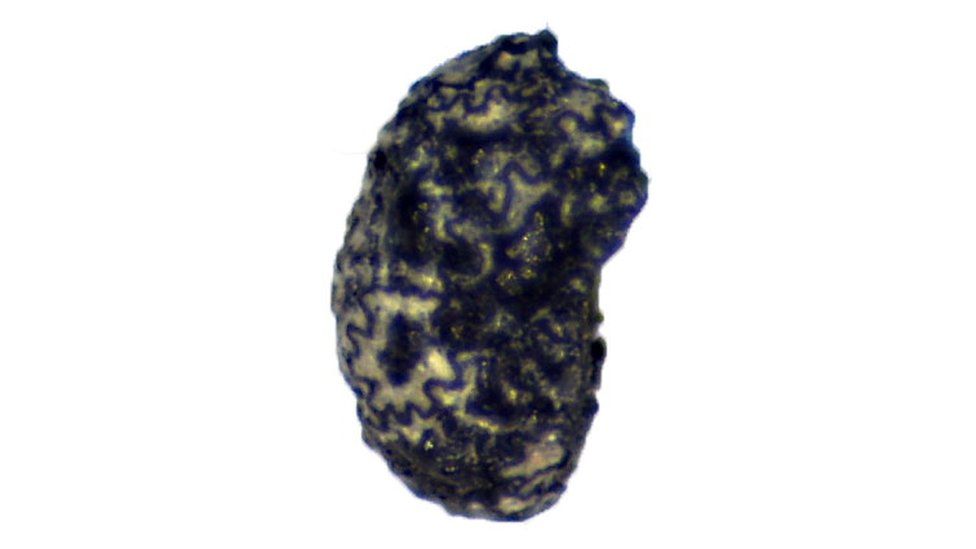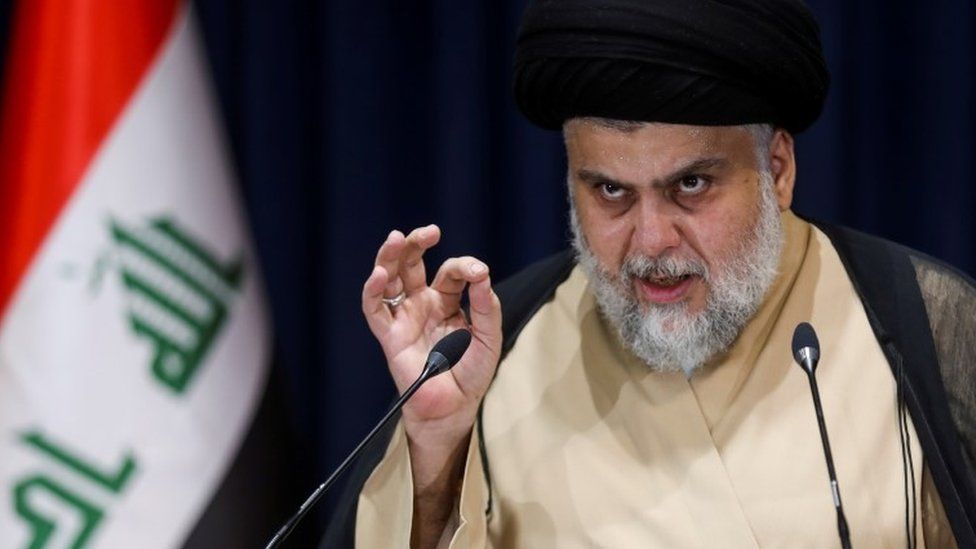Wednesday, 13 October 2021
Liberia teenage taxi rider praised for returning cash
Former Health Secretary Matt Hancock given United Nations role
Humans used tobacco 12,300 years ago, new discovery suggests
Four charred tobacco plant seeds found in an ancient Utah fireplace suggest early Americans may have been using the plant 12,300 years ago.
The finding makes the first known use of tobacco some 9,000 years earlier than previously thought.
Researchers believe hunter-gatherers in the Great Salt Lake Desert may have sucked or smoked wads of the plant.
Until now, the earliest evidence of tobacco use was a 3,300-year-old smoking pipe discovered in Alabama.
Archaeologists discovered the millimetre-wide seeds at the Wishbone site, an ancient camp in the desert in what is now northern Utah.
There, they found the remnants of an ancient hearth that was surrounded by bone and stone artefacts. These included duck bones, stone tools, and a spear-tip bearing the remains of blood from a mammoth or an early form of elephant.
 IMAGE SOURCE,REUTERS
IMAGE SOURCE,REUTERSTheir findings suggest the native American hunter-gatherers may have consumed the tobacco while cooking or toolmaking, the scientists say in a paper published in the journal Nature Human Behaviour.
The tobacco plant is native to the Americas and contains the psychoactive addictive substance nicotine.
Tobacco was widely cultivated and dispersed around the world following the arrival of Europeans in the Americas at the end of the 15th Century.
“The tobacco seeds were the big surprise. They are incredibly small and rare to be preserved,” Daron Duke of the Far Western Anthropological Research Group told the New Scientist.
“This suggests that people learned the intoxicant properties of tobacco relatively early in their time here rather than only with domestication and agriculture thousands of years later.”
Today, the Great Salt Lake Desert is a large dry lake. But 12,300 years ago, the camp would have been on a vast marshland.
“We know very little about their culture,” Mr Duke said of the hunter-gatherers. “The thing that intrigues me the most about this find is the social window it gives to a simple activity in an undocumented past. My imagination runs wild.”
…………………………………………………
Iraq election: Nationalist cleric Moqtada al-Sadr claims victory
Mr Sadr, who wants to end US and Iranian influence over Iraq’s internal affairs, promised to form a government free from foreign interference.
Partial results showed Saeroun winning 73 of the 329 seats in parliament and Sunni Speaker Mohammed al-Halbousi’s Taqaddum coalition second with 38.
The pro-Iranian Fatah alliance suffered a surprise setback, getting only 14.
It is likely to take many weeks of negotiations to build a new governing coalition, which Mr Sadr cannot lead because he did not stand as a candidate.
But the record low official turnout of 41% suggests many Iraqis do not believe that there will be any real change to the power-sharing system, based on sectarian and ethnic identity, that has allowed a narrow elite to keep a firm grip on power since the US-led invasion in 2003.
Sunday’s election was the first since mass protests over government corruption, high unemployment and dire public services erupted in 2019.
The poll had been due next year but was brought forward by six months in response to the unrest, during which more than 550 demonstrators were killed by security forces and gunmen suspected of links to powerful Iran-backed Shia militias in the paramilitary Popular Mobilisation force.
The old electoral system was also replaced with one meant to make it easier for independent candidates to challenge established parties.
Initial results released on Monday night showed that Saeroun won 19 more seats than it did in the last election in 2018, the state-owned Iraq News Agency (INA) reported.
Mr Sadr hailed the results as a victory for reform and for Iraq.
“It is the day of the victory of reform over corruption. The day of the people’s victory over occupation, normalisation, militias, poverty, injustice and enslavement,” he said in a televised speech.
“It is a day when sectarianism, ethnicity and partisanship were defeated. It is the day of Iraq and we are the servants of the Iraqi people.”
The cleric warned foreign powers that all embassies would be welcomed “as long as they do not interfere in Iraq’s internal affairs and the formation of the government”, and that any intervention would be “met with a diplomatic or even a popular response”.
 IMAGE SOURCE,REUTERS
IMAGE SOURCE,REUTERSMr Sadr, 47, is one of the best-known and most powerful figures in Iraq.
A son of the late Grand Ayatollah Mohammed Sadeq al-Sadr, he shot to prominence after the 2003 invasion as a vocal opponent of the foreign occupation and the head of a militia that repeatedly clashed with US forces.
In recent years, he has recast himself as an anti-corruption campaigner and also distanced himself from Iran, vowing that he would “not leave Iraq in its grip”.
He has also criticised the Iran-backed militias, which have developed significant political and economic power since helping the Iraqi government defeat the Sunni jihadist group Islamic State in 2017.
Fatah leader Hadi al-Ameri, a militia commander with close ties to the hard-line leadership in Tehran, rejected the election results.
“We will not accept these fabricated results, whatever the price, and we will defend the votes of our candidates and voters with full force,” he was quoted as saying by Al-Sumaria TV on Tuesday.
…………………………………………………………
A Royal Encounter at Madame Tussauds London - Part 7
Exploring the Majesty of the Palace and Its Distinguished Guests Greetings, ladies and gentlemen! My name is Sofonie Dala, and I am deligh...

-
Since the July 26 coup, Niger has become the latest hotbed of disinformation in the troubled Sahel region as West African powers grapple wit...
-
Angolan President of Republic João Lourenço marked Saturday (26) the third year of his five-year in office, marked by the strong negative ...
-
Celebrating Purpose, Passion & Powerful Public Engagements! Dear Changemakers, As we reach the midpoint of 2025, we’re thrilled to sha...




